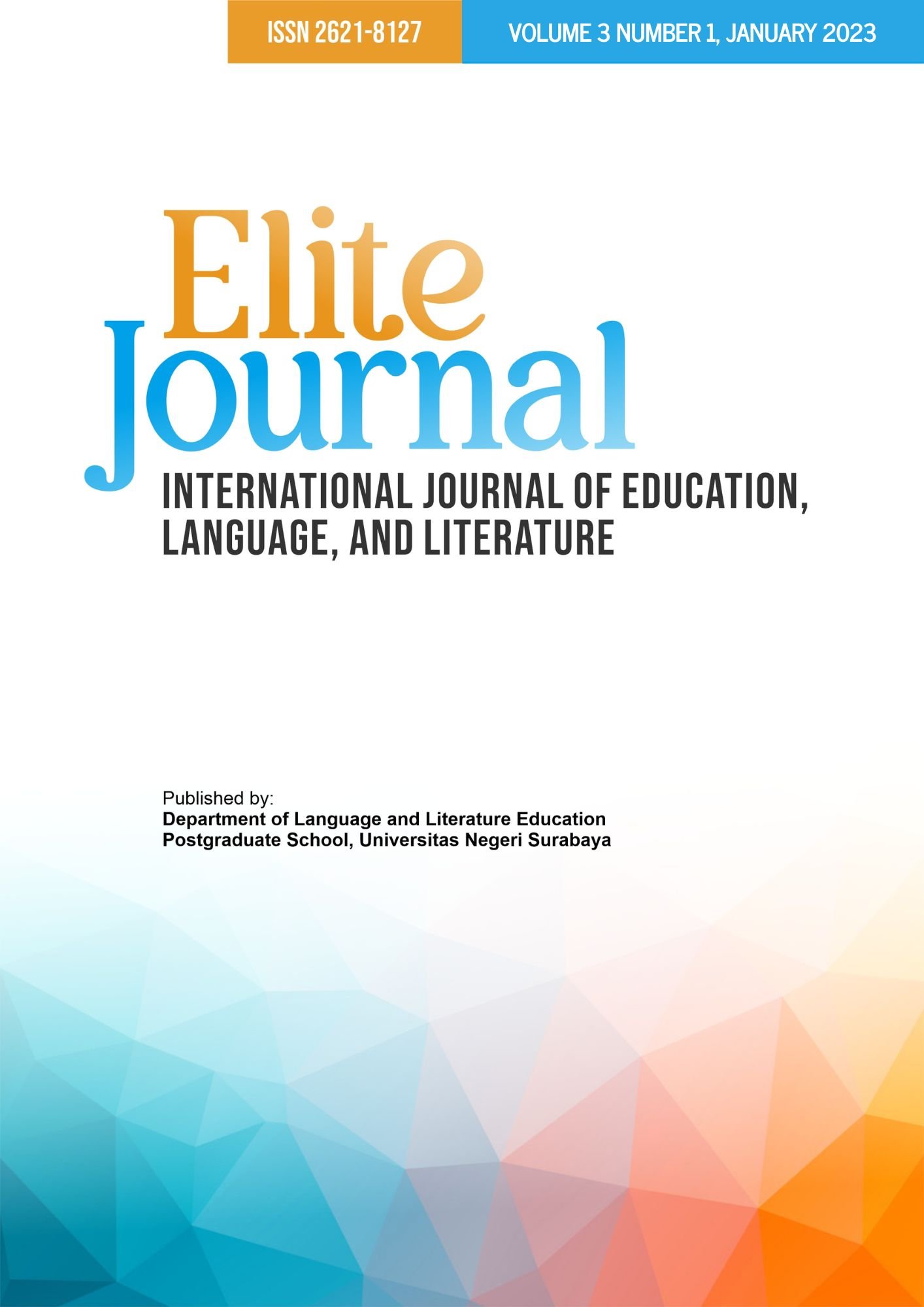NAPOLEON’S POWER ABUSE IN ANIMAL FARM BY GEORGE ORWELL
DOI:
https://doi.org/10.26740/elitejournal.v3n1.p20-25Keywords:
Power Abuse, Napoleon, Personality, LeaderAbstract
The study's goal is to investigate what influences a leader's abuse of power. The study focuses on the main character of the story, Napoleon. The researcher focuses on Napoleon from his acts, speeches, narration, and dialogue that focuses and the implication of power abuse. The Eysenck diagram includes choleric, melancholic, phlegmatic, and sanguine to categorize personality. To help this research further, the researcher uses a qualitative method. The purpose of the qualitative method is to understand the act behind several actions that a character takes, which helps to understand Napoleon as a character. Besides the methods explained before, the researcher also uses the character and characterization methods to understand further what kind of person or animal Napoleon is in terms of his character in the story. The result of this research shows that in abusing power, Napoleon's personality is affected by several "things", but the most favorable option is Napoleon's desire. This research goal is to encourage people not to abuse their power because it will make problems for everyone.
References
Allport G.W. (1937). Personality: A Psychological Interpretation. New York, NY: Holt.
https://www.marketing91.com/abuse-of-power-at-workplace/
Chambliss, John. (2017). Davenport mayor resigns, pleads no contest in handicapped placard case. Retrieved from
Giulio, J V. D. (2014). Are leaders born or made?
Jaehnig, J. (2021) What is The Choleric Temperament? Retrieved from
https://www.betterhelp.com/advice/temperament/what-is-the-choleric-temperament/
Maxwell, J. C. (2009). Leadership 101. Chicago: Christian Audio.
Orwell, G. (1945). Animal Farm. LimpidSoft.
Padlyalpattani. (2015). Personality.
Ryan, D. (2019). Why Being A leader is Harder Than it Looks. Retrieved from
https://medium.com/swlh/why-being-a-leader-is-harder-than-it-looks-bf2abceb9805
Singh, A. (2015). Psychological factors affecting personality development. IJPESH 1 (3), 78-80.
Weinberg, R. S., & Gould, D. (2014). Personality and Sport. Foundations of Sport and Exercise Psychology, 25-46.
Downloads
Published
How to Cite
Issue
Section
License
Copyright (c) 2023 Calvin Sion

This work is licensed under a Creative Commons Attribution 4.0 International License.
 Abstract views: 1220
,
Abstract views: 1220
, PDF Downloads: 1379
PDF Downloads: 1379





